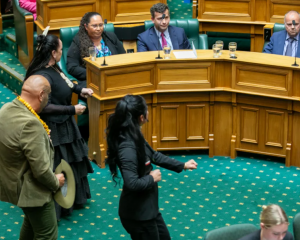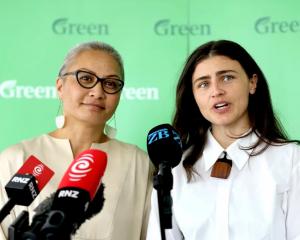While it most surely cannot be the intention, the latest delay in revealing the final costs of building Forsyth Barr Stadium can only lead to further speculation, innuendo and adverse publicity for the venue and the Dunedin City Council.
For while it is imperative to "get it right", from the beginning the most oft-asked questions about the project were how much it was going to cost - and who would pay.
Definitive answers to these questions have been slow in forthcoming and this latest postponement will only fuel responses likely to range from resignation to frustration.
This, after all, is a matter pertaining to the ratepayers and their pockets. It does not help matters that, having fended off inquiries as to these very matters over some months, at a meeting supposed called finally to reveal the figures, the council yesterday yet again demurred.
At the same meeting yesterday it was revealed the council was to spend a further $55,000 on a review to help it adjudicate on the real final costs.
After all this time, amid so much controversy and cost reckoning, the fact a final tally is beyond the DCC and the collective brains of its numerous well-paid employees, is at the least surprising.
Mayor Dave Cull was yesterday not prepared to reveal even a range of figures.
Rather, he said there were a number of "indicative" figures with which the council was "not comfortable".
He did allow that the amount in contention was in the millions rather than the tens of millions.
He also appeared to concede that the statement "on time and on budget" was no longer applicable.
That will surprise no-one who has been involved in even a relatively minor building project; nor those who have followed this particular saga closely.
Late last year, when the stadium was given a valuation based on replacement costs of $225 million, it was conceded by finance and corporate support general manager Athol Stephens that the "valuation and the actual cost are going to end up not too far apart".
What will surprise just about everyone is the decision to keep the figures under wraps for yet another month or so. Where would be the harm in releasing to the public at least a provisional range, with confirmation of the exact figure pending the review?
That review, to be conducted by a team from the Auckland office of PricewaterhouseCoopers due to arrive in the city next Wednesday, is expected to take up to three weeks.
If past form is any indication, there will be a period in which the report is put together and presented to various stakeholders for comment.
The public - indirectly funding both the report and its subject - will, as usual, be the last to be informed, apparently no later than March 27. The wise among them will not be holding their breath.
And another thing
The tragic death of veteran Sunday Times (UK) journalist Marie Colvin (56) in the besieged Syrian city of Homs on Wednesday, illustrates the dangers faced by foreign correspondents in the line of duty, but also the extent of the escalation of conflict in that beleaguered nation.
Killed alongside Ms Colvin in a makeshift media centre was the French photojournalist Remi Ochlik (28) victims of indiscriminate bombardment of the city by the regime of Bashar al-Assad.
It is an irony that would not have been lost on Ms Colvin, who sought no glory nor found glamour in her chosen calling - rather a commitment to reveal to the world the reality of often tragic situations in which she placed herself - that in their deaths greater attention might now be paid to the conflict than was when they lived and reported it.
Renewed efforts towards a ceasefire and finding a lasting solution to the increasing carnage in Syria would be a fitting tribute to one of the great foreign correspondents of her generation.












